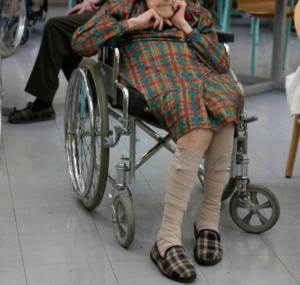 The number one thing you want to do is be there. You want to have, whenever possible, a physical presence at the institution where your elderly loved one is placed.
The number one thing you want to do is be there. You want to have, whenever possible, a physical presence at the institution where your elderly loved one is placed.
Ideally, try not to be on a fixed schedule but visit during different shifts and different times. This will give you a better opportunity to see the quality of the care that your loved one is receiving. Additionally you should be inquire about how your loved one’s health is being managed, including getting permission to look at their medical charts.
It may even mean participating in activities relating to the care of your loved one. You might want to look at their bottom to see if the skin is intact and if they are incontinent, whether they are being cleaned up properly.
You may want to sit with them when they eat to see if someone comes in to feed them or if they are left with a tray of food without the ability to effectively get their food from the tray into their mouth. Be aware and watch and see what’s going on with your loved one.
If your elderly parent can’t lift a glass and the aids come in and just hand a cup to him and say here you go, that’s neglectful, and elder loved one can easily become dehydrated.
You must watch closely for details that can make a huge difference in evaluating the quality of the care that your loved one is receiving.